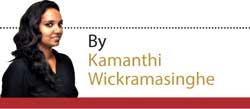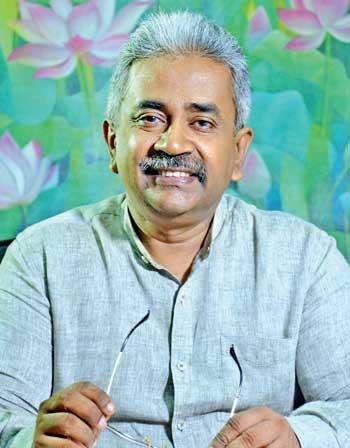03 Sep 2019 - {{hitsCtrl.values.hits}}
- we reject an Executive Presidential system and want it to be much more democratic
- At the moment, Sarvodaya is focusing on reconciliation across all communities
- The youth of this country are not like before. I have seen particularly during the past few months that a lot of youth are now returning to Sri Lanka
 The Sarvodaya Shramadana Movement founded by Dr. A. T Ariyaratne has empowered rural communities for generations. Acknowledged as the most broadly embedded community-based development organisation network, the Movement seeks a no-poverty, no-affluence society through community-based work and volunteerism. ‘Sarva’ translates to All and ‘Udaya’ to Awakening, hence the theme ‘Awakening’ of All. Staying true to its theme, the Movement has continued to awaken the minds of people for the past 60 years. Enacted by an Act of Parliament called the Lanka Jathika Sarvodaya Shramadana Sangamaya the Movement has inspired people in close to 15,000 villages during its span of 60 years. What’s quite interesting about this movement is its philosophy which not only takes into account the physical needs of people, but also promotes spiritual and cultural values as well. Spearheading its operations at present is Dr. Vinya Ariyaratne who is equally passionate to spread the movement’s wings further. This is why he is keen on bringing about a paradigm shift in the existing political structure by introducing a concept which would remain independent of any affiliations.
The Sarvodaya Shramadana Movement founded by Dr. A. T Ariyaratne has empowered rural communities for generations. Acknowledged as the most broadly embedded community-based development organisation network, the Movement seeks a no-poverty, no-affluence society through community-based work and volunteerism. ‘Sarva’ translates to All and ‘Udaya’ to Awakening, hence the theme ‘Awakening’ of All. Staying true to its theme, the Movement has continued to awaken the minds of people for the past 60 years. Enacted by an Act of Parliament called the Lanka Jathika Sarvodaya Shramadana Sangamaya the Movement has inspired people in close to 15,000 villages during its span of 60 years. What’s quite interesting about this movement is its philosophy which not only takes into account the physical needs of people, but also promotes spiritual and cultural values as well. Spearheading its operations at present is Dr. Vinya Ariyaratne who is equally passionate to spread the movement’s wings further. This is why he is keen on bringing about a paradigm shift in the existing political structure by introducing a concept which would remain independent of any affiliations.
 In a candid interview with the Dailymirror , Dr. Ariyaratne shed light on the journey of the Sarvodaya Movement, where the existing political structure went wrong and his vision for change.
In a candid interview with the Dailymirror , Dr. Ariyaratne shed light on the journey of the Sarvodaya Movement, where the existing political structure went wrong and his vision for change.
Excerpts :
Q Let’s reflect a bit on the journey the Sarvodaya Movement has come thus far.
Sarvodaya is still a grassroots development movement which has a long history. It started as an educational experiment by a group of students and teachers in the late 1950s. Its founders felt that the country needed a different development paradigm. This was because there were discussions and debates back then to revert into a nationalist development agenda. It was inspired by both Buddhist and Gandhian philosophies. My father who was also the founder of the Movement at the time was a teacher at Nalanda College and encouraged students to visit remote villages which were considered low caste. So they went to a Rodee village in Kanatholuwa and started living with the people. It was a voluntary organisation with a distinct philosophy where self-help was at the core along with Buddhist teachings of sharing. This is why it was known as the Sarvodaya Shramadana movement. Here, the concept of Shramadana was broader, where people were asked to volunteer not only in terms of going and working for a village project physically, but also sharing resources, etc. It grew as a voluntary movement and was implemented across the island including all communities.
Q What is the Awakening process?
Awakening starts with the individual and encompasses spiritual, moral and cultural dimensions along with socio-economic and political factors as well. It then moves to the family unit which is important to build the social fabric of society. With globalization and media, the family unit is under threat. Then we move to awakening the village and we have identified 10 basic human needs which must be fulfilled in any community. Then there are cities and towns to awaken the urban communities. Deshodaya is to awaken the entire country and global awakening is through Vishwodaya. At the moment, Sarvodaya is focusing on community development activities and works strongly on peace and reconciliation across all communities
Q The Sarvodaya Institute of Learning is a new venture under your purview. Tell us more about how it engages youth with communities.
The Sarvodaya Institute of Higher Learning was established to generate a new set of leaders who can take the lead to develop the country based on its own resources by looking at sustainable development principles. We encourage obtaining formal certificates, but whatever they do needs to connect to a social community process and there has to be a benefit to the community. In most instances, when we do a degree even the research question is decided by us. Here, the student has to go to the community, discuss with them and find out an issue that affects them the most. At the end of the project, the community has to decide on if the concept worked for the village and they will be part of the assessment.
Q How challenging has it been to exist as a non-political organisation?
Our work speaks for itself. It has been independent of any form of affiliation. But when it comes to the Deshodaya programme we have to be vocal about certain things. So it could be interpreted as a political stand and we face that risk. I think in general, people also think that this system needs to change. So we reflect what the ordinary people in this country want. That way we are speaking on their behalf and creating a platform for them to speak. There are hundreds of Deshodaya leaders who are speaking on behalf of their own communities. Politics is affecting every citizen and a citizen has a right to back certain views. It was then that we created this platform called the National Peoples Movement (NPM) which is not a political party, but we created it to attract other likeminded individuals and groups, organisations who are interested in a structural change in this country, both in the economy and the political system to work together to present a plan for the country.
Q How easy or difficult is it to change the existing structure?
The challenge is not to first change the structures – but firstly to change our own mindsets. Because there is a bit of an apathy or hopelessness in our society. This is why in our policy framework we say ‘together we can.’ Secondly although we claim ourselves to be a literate population with over 96% literacy, we are very illiterate when it comes to politics and Constitutional matters. Even in terms of the rights of citizens, we are an ignorant population and we lack the ability to think critically. Our education system also doesn’t encourage critical thinking. There’s no openness and the media aren’t helpful either. Therefore our average citizen is a very disempowered person. But according to historical reasons, we expect a saviour to come and save us. People don’t take responsibility. Firstly if we can change that mindset and think that we have the power to change starting with ourselves, then the system can automatically change. Then we have to see what form of a government we require and move toward basic, fundamental things such as the level of power devolution. We don’t want power to be centralised at the top to an individual. So we reject an Executive Presidential system and want it to be much more democratic. But we believe that there has to be a conversation with the people to get there.
Q Where do you think the existing political structure went wrong?
If I may speak as a citizen it again starts from our identities. If you take Buddhism, it’s an inclusive philosophy. It’s not even a religion. From the beginning we lost some of the fundamental values of Sinhala-Buddhist philosophy which helped to build the civilisation of this country. Of course, there were external pressures, but we never got an inclusive governing structure for the country or state. Our state was never fair and inclusive in the true sense of the word. That is one of the reasons. Then the economic model that we followed was very much welfare-oriented, making people dependant on the state-services. I’m completely for free education and free health. But giving food subsidies and even the present form of Samurdhi is making poverty worse. It’s not empowering people. So the development model particularly after 1977 Neo-liberal economic model and the nexus between that economic model and the party political system made things worse. There was exploitation and disparities and now we see the unequal distribution of wealth which is enormous. You see children dying of malnutrition while there’s over-nutrition in the country. Unlike in other countries in the African region we don’t have a food crisis. Food availability is widespread, but there’s a disconnect. People don’t have access because of the prices and there are wrong nutritional practices as well. So we are in a complex and a vulnerable situation as a country now. Therefore it’s a combination of not being able to build an inclusive state to having a wrong economic model to distortion of our basic values in our religions.
Q How could it be resolved?
The solution also has to come from people’s consciousness, changing that mindset and returning to the roots of fundamental teachings of our religions and looking at a governance system which is inclusive and fair by everybody. At the same time an economic model should be built, which is equitable and creates equal opportunities for everybody to come up with innovative ideas. Though the crisis is serious, I see a huge opportunity now and I have faith in the youth. The youth of this country are not like before. I have seen particularly during the past few months that a lot of youth are now returning to Sri Lanka and many have also joined the NPM as well.
Q Do you think civil society groups have a say today?
When you say civil society it’s a wide spectrum. I see ordinary people expressing themselves much more. When injustice happens on the road, they are quite vocal unlike before. I think there is a space but because they control the structures and laws. I think that power seems to be diminishing now. There’s a natural trend. Now private schools don’t invite politicians to any of their functions. It’s a fine example. All schools have distinguished old-boys and old-girls who could be invited. They can relate to the school setting. Even Government schools are not inviting politicians. So we need to give more ideas to people to boycott politicians and demand accountability from the system. Without changing the system we have many opportunities, but citizens aren’t exercising their powers. Exercising their democratic power or sovereignty directly has to happen now. If a significant percentage of people start doing that, they would change their mindset and during an election if they have a better choice we can change the system.
Q So you think that a new leader from a new party has space to convince the people?
 Not one individual. That individual has to lead a team. Even during the Presidential Election the ideal candidate I like to see is a person who would conform to the 14 criteria that we have come up with along with a team. Because no one leader can save this country. At least for the main sectors you need professional people who are committed, honest and have a track record. We believe that such people are there and we will see a better alternative for people in the upcoming elections as well.
Not one individual. That individual has to lead a team. Even during the Presidential Election the ideal candidate I like to see is a person who would conform to the 14 criteria that we have come up with along with a team. Because no one leader can save this country. At least for the main sectors you need professional people who are committed, honest and have a track record. We believe that such people are there and we will see a better alternative for people in the upcoming elections as well.
Q Would you be fielding a candidate from NPM?
As NPM we can’t because we aren’t a political party, but we would encourage a new, independent candidate to come from all the forces other than the main forces. That way we would facilitate that as well and we hope that there would be a new choice for the people. He or she will represent NPM values from a different platform. NPM will endorse the programme by such a candidate. For the Parliamentary elections we will have a platform to nominate a good choice for the people through a participatory process. I would like people to think anew. Demand accountability from the existing system and join a new force.
Q Where do you see the Sarvodaya Movement in 10 years’ time?
Sarvodaya will continue to be a grass-roots development movement, holding and experimenting new things in sustainable development. Hence it will focus on sustainable development very broadly and will be with both the governance and education programme. It will continue to be with the vulnerable people as well. The NPM and Deshodaya will be the watchdog for the political transformation.
24 Apr 2024 16 minute ago
24 Apr 2024 26 minute ago
24 Apr 2024 44 minute ago
24 Apr 2024 1 hours ago
24 Apr 2024 2 hours ago